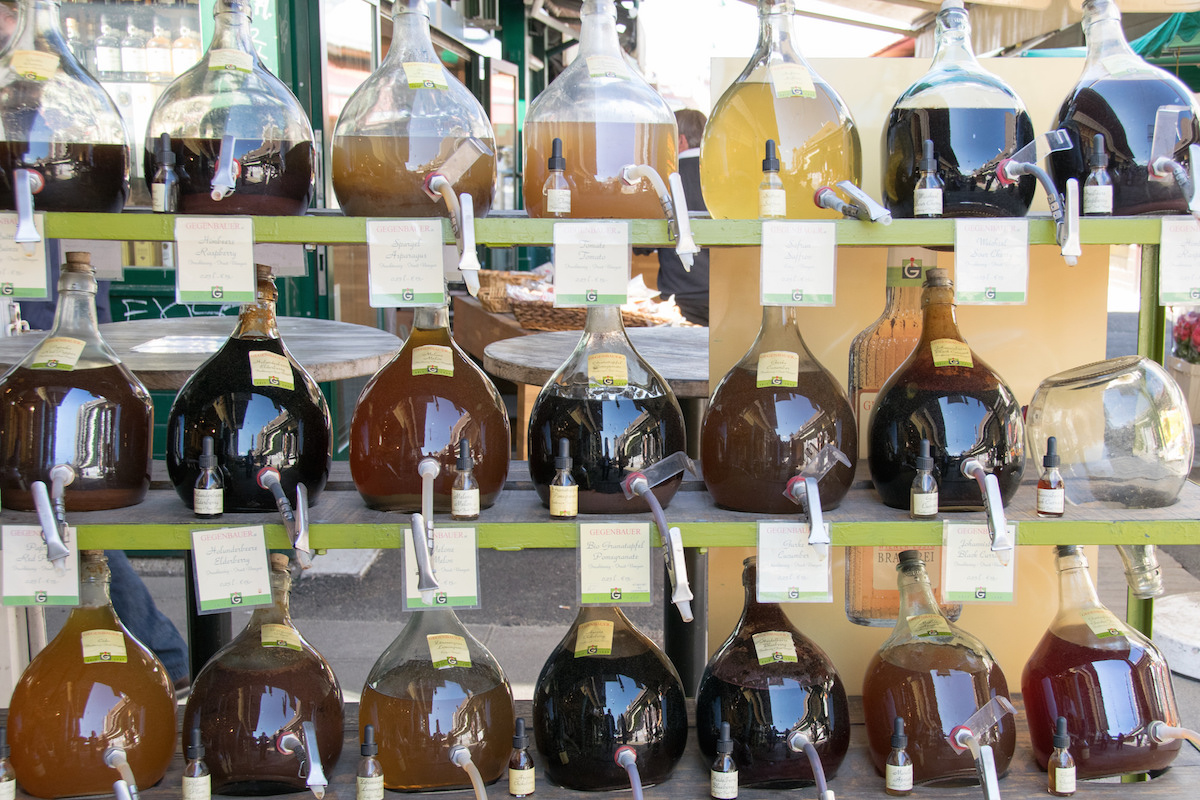Six Healthy Alternatives to Apple Cider Vinegar

Vinegars photo by Paul Asman and Jill Lenoble via Flickr/Creative Commons
Apple cider vinegar has been flying off the shelves this year, and for good reason: small, concentrated amounts of the acidic substance have been shown to prevent indigestion, kill bacteria, regulate insulin levels, and even help with weight loss.
But apple cider isn’t the only vinegar in town. We spoke to Chris Spivak, founder of Massachusetts-based Fresh Fruit Vinegars, about the healthiest—and coolest—options on the market today. Here are six healthy vinegars he recommends:
1. Passion Fruit: When used as a simple, fruit-based sauce, vinegars like this one include all the benefits of the raw fruit. “We add [the fruit] right in, and there’s no added sugar,” Spivak says. “Passion fruit is rich in fiber and vitamin C, and it goes perfectly with shrimp and other seafood.”
2. Malt: “Malt varieties are really getting trendy,” Spivak says. “For people who want a healthy alternative to drinking [alcohol], they add a flavorful complexity to drinks.” This tart ingredient may also aid in the breakdown of a beverage’s sugars.
3. Strawberry Basil: This variety is a personal favorite of Spivak. “Any strawberry vinegar is full of natural antioxidants, honed into this amazing, tart flavor,” he says. “They’re great, naturally sweet options for diabetics, since strawberry vinegar—and fruit vinegars in general—slow sugar rates in the bloodstream.”
4. Coconut: Made with the sap of coconut palms, this is one of the most commonly available, yet little-known, varieties of vinegar. “It’s a great sour without any other additives,” Spivak says. Bonus: It’s lower in calories than apple cider vinegar.
5. Lemon Thyme: Thyme adds iron and heart-healthy polyphenols to vinegar. “This is perfect for adding a tartness to any type of sweet drink,” Spivak says.
6. Pine Syrup: It may not technically be a vinegar, but Spivak says pine syrup shouldn’t be overlooked as another alternative to sugary sweeteners. He says it’s full of anti-inflammatory properties, and used in tea or other beverages, it can combat a cough, bronchitis, or asthma.


